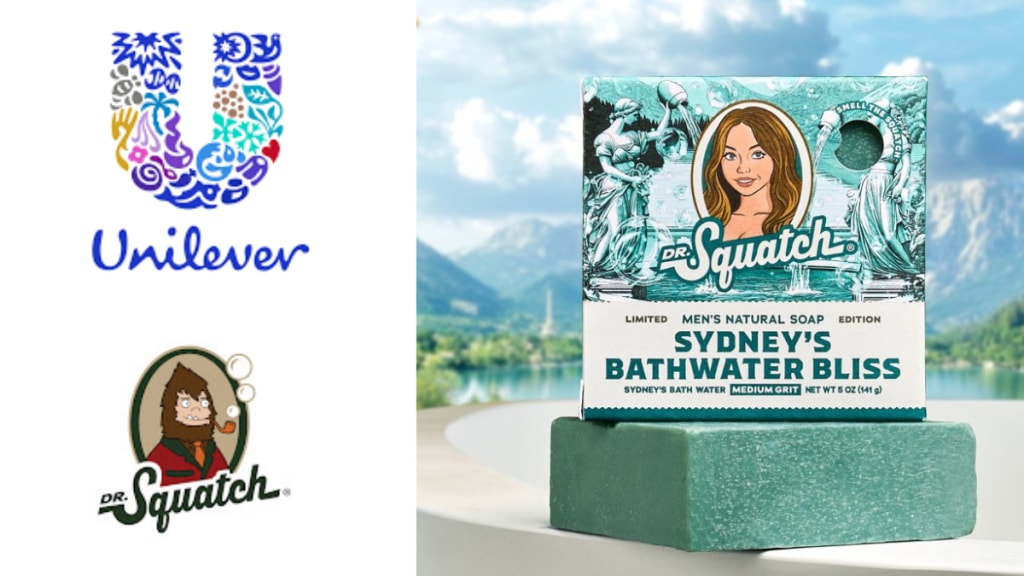Unilever is placing a $1.5 billion bet on Gen Z, viral marketing, and perhaps a little Sydney Sweeney magic. As reported by the Financial Times, the consumer goods giant has agreed to acquire U.S.-based men’s grooming brand Dr. Squatch from private equity firm Summit Partners. While the official price remains undisclosed, several sources familiar with the deal confirmed the $1.5 billion figure to the FT.
Dr. Squatch, best known for its cheeky, irreverent ads and celebrity-driven campaigns, has gained cult-like status among younger male consumers. The company sells “natural” soaps, deodorants, shampoos, and other personal care products directly through its website and third-party retailers. The brand’s viral momentum has been fueled by partnerships with stars like Sydney Sweeney, who appeared in a bubble bath as a “Body Wash Genie”, and Mike Tyson, seen braving an ice bath.
Fabian Garcia, Unilever’s head of personal care, praised the brand’s “clever digital engagement strategies,” saying in a statement: “Building on its success in the US, we are excited to scale the brand internationally and complement our offering in the fast-growing men’s personal care segment.” No reports have been made as to whether the company will be bringing Sydney Sweeney’s bathwater infused soap to India as of now.
According to Forbes, Gen Z men are a major growth engine in this category, with facial skincare usage among them jumping from 42% to 68% between 2022 and 2024, based on data from research firm Mintel. But the billion-dollar question is: Can Unilever avoid making the same mistake twice?
The company’s last major move into viral male grooming came in 2016, when it acquired Dollar Shave Club (DSC) for $1 billion. Much like Dr. Squatch, DSC had built a brand on rebellious, culturally savvy marketing and a direct-to-consumer model that resonated with younger audiences. But seven years later, Unilever quietly sold DSC to private equity after failing to meet its performance goals.
DSC’s former CEO, Larry Bodner, didn’t mince words about why the acquisition flopped. Speaking to Forbes, he said Unilever “neutered the vibe and fun of what the brand stood for,” adding that it simply “didn’t fit in a vanilla corporate entity.”
That’s the cautionary tale looming over the Dr. Squatch deal. According to Forbes, successful startup acquisitions depend on preserving three key pillars: a lofty brand purpose, strong customer relationships, and an employee culture built on creativity and autonomy. When absorbed into rigid corporate structures, brands often lose the very authenticity that made them valuable in the first place.
Dr. Squatch’s brand voice leans into exactly that type of authenticity, selling not just soap but an idea of self-expression and alternative masculinity. One of its most talked-about campaigns featured a limited-edition product supposedly inspired by Sweeney’s bathwater. Unilever appears to be rebalancing its portfolio toward high-growth, premium categories. The company also recently acquired refillable cosmetics brand Wild and is preparing to spin off its ice cream division, including Ben & Jerry’s, into a separate entity.
The global men’s personal care market is projected to grow at 11% annually through 2032, per Forbes. Whether Dr. Squatch can deliver returns and retain its quirky soul may determine if Unilever has finally cracked the code on connecting with younger consumers.

